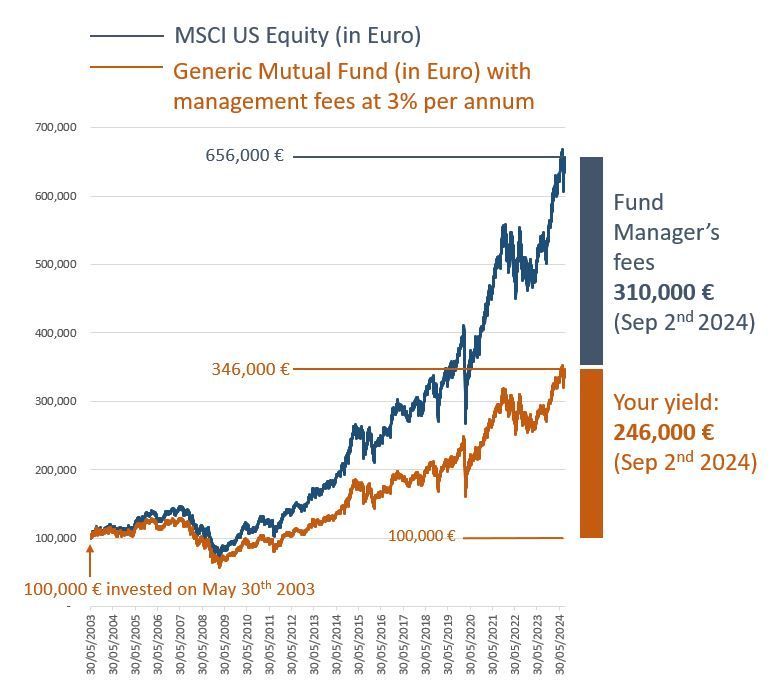How much do Fund Management Fees weigh?
A lot, also because they accumulate over time.
The following graph shows the hypothetical case of an investor who purchased a managed mutual fund that uses the MSCI US Equity as a benchmark, a widely used index for funds that invest in American stocks.
The investment is hypothetically made on May 30, 2003 and is never liquidated. Management fees are 3% per year applied quarterly. We assume that there are no other fees applied by the intermediary and that the manager is always able to perform in line with the index.

The final result, I believe, does not require any particular comment: suffice it to say that in this hypothetical example, the saver who in May 2003 had invested 100 thousand Euros directly in the US Equity Index would have seen his assets grow to 656 thousand Euros in September 21 years later*. Having done so by investing through a US Equity Mutual Fund, that assets would now be worth 346 thousand Euros: the difference would have been directly or indirectly absorbed by the commissions.
I believe that the saver can aspire to a more equitable "division" of the total result, also because, if there had been a loss, the intermediary would not participate in it but would instead continue to receive his commission, contributing to worsening the negative final result for the saver.
*Past performance is never indicative of potential future returns
“Since great things cannot be achieved without some danger, businesses should only accept new endeavors when hope is greater than fear.”
Francesco Guicciardini - Political Speeches (1512)
Federico Bellanti
P.I. 13303710969
Business Address: via Montenapoleone 8, 20121 Milano
Registered Address: via Luigi Manzotti 10, 20158 Milano
info@studiobellanti.com
tel.: +39 02 82942 744
Registered at Albo OCF dei Consulenti Finanziari Autonomi (delib. 2520 del 10/07/2024)
Adhering to the Arbitro per le Controversie Finanziarie


